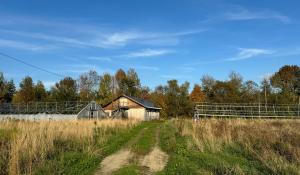We all know that climate change is driven by our energy and transportation systems, but we don’t hear as much about how our current food systems also create climate change. However, sustainable agriculture and food systems could be a huge part of the solution instead.
The Problem: Fossil Fuels & Soil Degradation
Currently, modern industrial agriculture uses enormous amounts of fossil fuels – particularly for fertilizers – and degrades the soil so that it doesn’t retain carbon. Energy consumed during fertilizer manufacture was equivalent to 191 billion liters [50.5 billion gallons] of diesel in 2000 and is projected to rise to 277 billion [73.2 billion gallons] in 2030. All of this energy is being used to produce an input that is richer and more nutrient dense when produced naturally, without carbon emissions.
The Solution: Organic Agriculture & Sustainable Practices
There’s a better way to practice agriculture – one that nourishes the soil and sequesters carbon. Modern organic agriculture, which produces yields similar to conventional agriculture, has the potential to sequester enormous amounts of carbon. Organic, sustainable agriculture takes carbon from the atmosphere and puts it back in the soil. The microorganisms in healthy soil convert organic waste into humus, which stores carbon rather than releasing it. These microorganisms also store carbon themselves, because they consume plant sugars, which are made with carbon through photosynthesis.
If 10,000 medium-sized US farms converted to organic farming, the emissions reduction would be equivalent to removing over 1 million cars from the road. If all US croplands became organic, it would increase soil carbon storage by 367 million tons and would cut nitrogen oxide emissions dramatically.
In fact, research from the Rodale Institute demonstrates that if we practiced organic agriculture globally, we would be able to reverse climate change. Rodale Institute created a model of a global carbon sink around the world through a 100 percent transition to organic agriculture. They compared that to the emissions that we had in 2012 globally and found that the world would have been able to sequester 111 percent of 2012 emissions. That’s how powerful organic agriculture could be as a climate change solution, and just one of the reasons we need to move to organic farming as quickly as possible.






